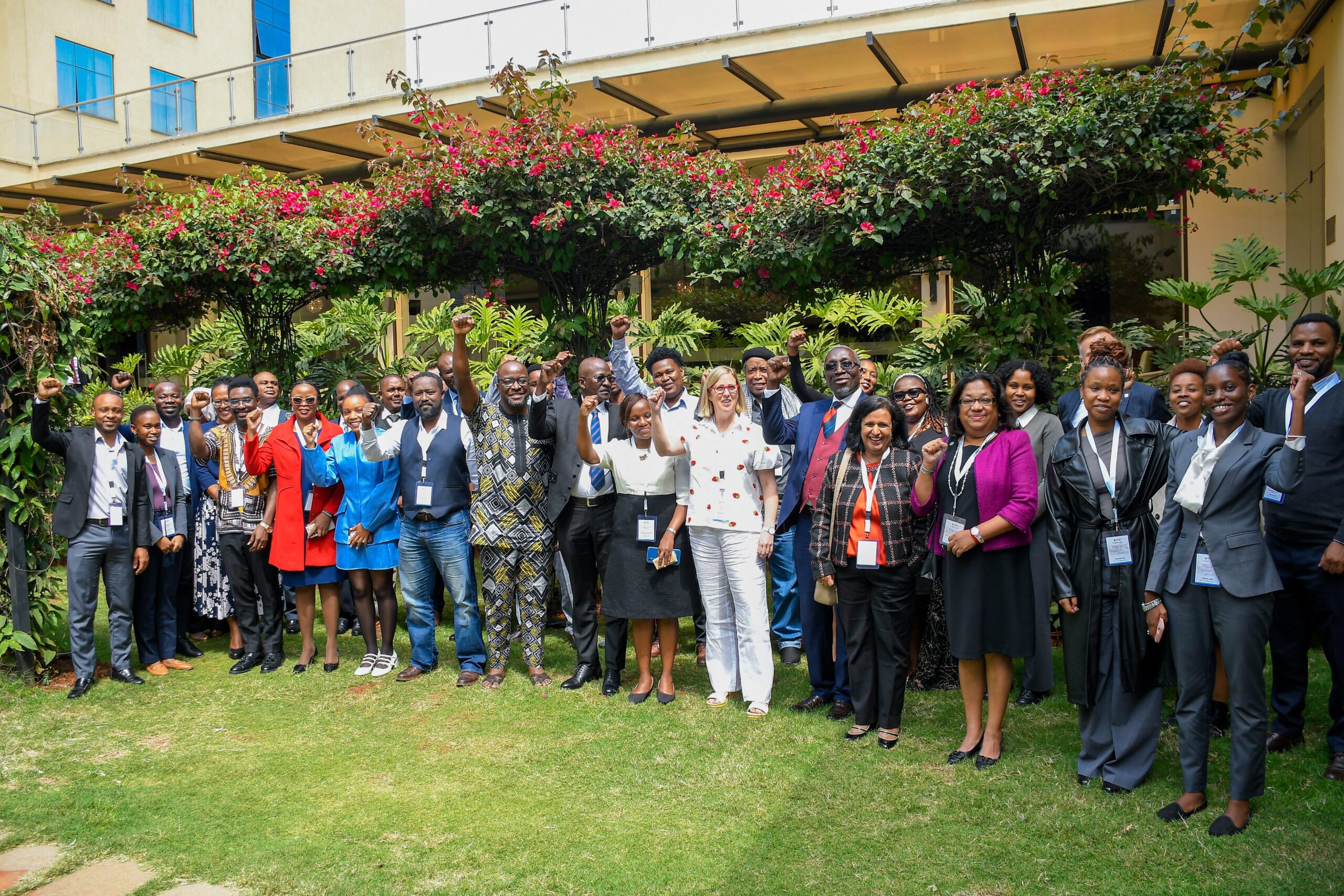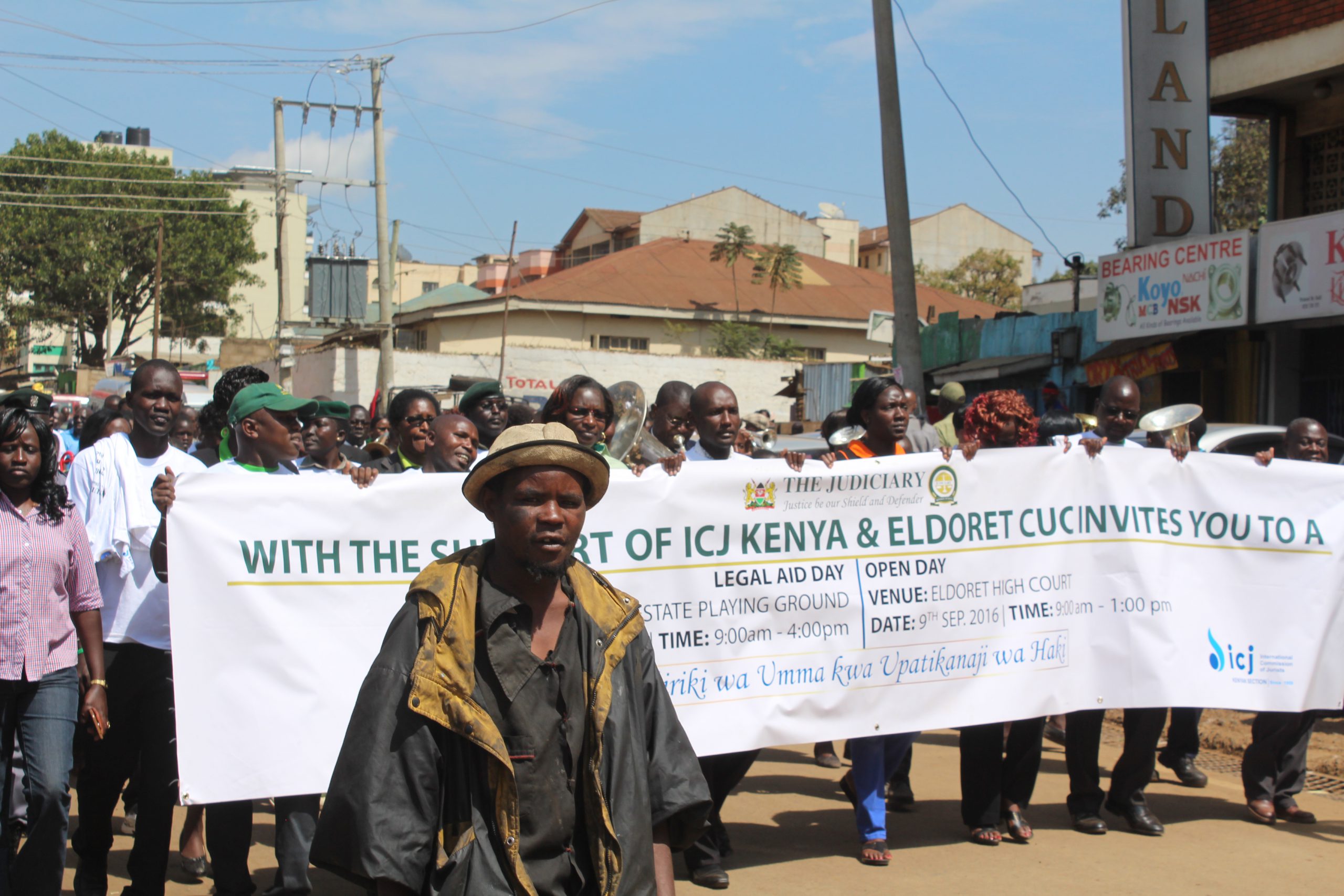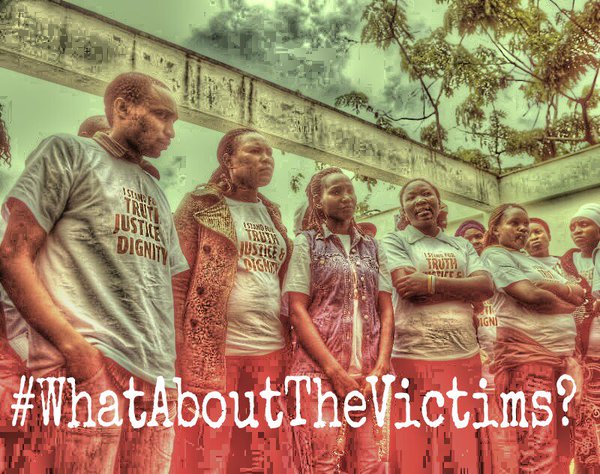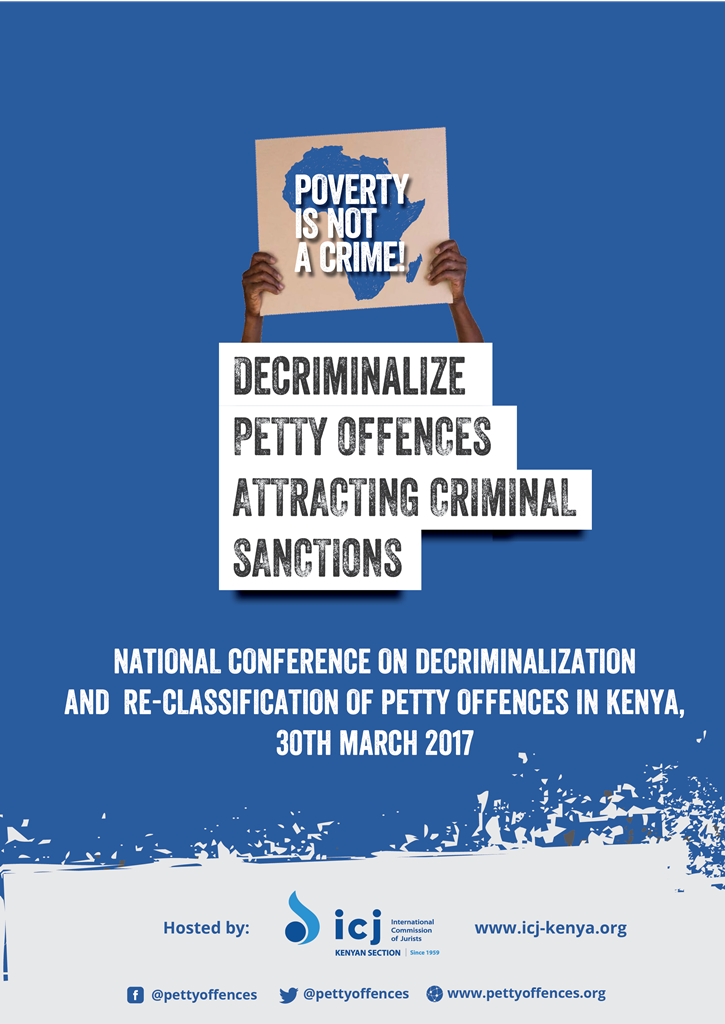21 MARCH 2017, NAIROBI: Anyango can today morning walk to the stream to fetch water smiling, things are looking good. It is not like the days of Anyango Senior, her grandmother, the one she is named after. She can now proudly carry a pocket constitution in her kanga wherever she goes. She is willing to defend her sovereignty.
Wanjiku is a member of the Court Users Committee in her home area, where she is actively involved in instituting judicial reforms. Wanjiku affirms that the courts are now more accessible and the Judges and magistrates are friendlier, unlike the days of Wanjiku Senior. She is jubilated that parliament passed and the President assented to the Legal Aid Act, the Small Claims Court Act and the Access to Information Act. She can now apply for legal aid and get assistance not only for her but her community as well. She now has a new inexpensive avenue of claiming her 50,000 Kshs from Kamau wa Waru from the sale of her latest farm produce. There may be challenges along the way, but there is hope.
Equal justice under the law is the ideal of every society, it is fundamental that justice should be served equally regardless of economic status. The Constitution of Kenya contains several provisions related to the issue of access to justice. This new right obligates the state to facilitate justice to all on equal basis. The right to access to justice bundles several rights including; the right to access culturally appropriate, procedurally friendly, economically accessible, physically accessible justice and the right to legal awareness and legal aid. Article 48 of the constitution provides that, ‘the state shall ensure access to justice for all persons and if any fee is required, it shall be reasonable and shall not impede access to justice’.
In terms of physical access to justice, the state has been working to ensure easier access to judicial services by setting up more courts to ensure that courts are reasonably close to the people. However, this does not encompass the entire scope of access to justice; the other ingredients are the right to legal representation and the right to expeditious resolution of disputes in accordance with the principles of law and natural justice. The first pillar of the Judiciary Transformation Framework focuses on the delivery of justice. The judiciary has been working towards improving the speed and affordability of justice, raising public understanding of the law and court procedures and promoting public participation through the Court User Committees. These efforts have had some degree of success as Kenyans can now feel the developing transformation.
The Legal Aid Act and the Small Claims Court Act breathe life to article 48 and other provisions of the constitution while reaching to the very soul of the constitution of Kenya which is the people. The legislations assert the preamble which is the proclaimed faith of the republic of Kenyan people. There is an intentional attack on divisiveness and inequality laced through entire constitution as it promotes equality and the rule of law. In country where justice is expensive the implementation of the Legal Aid Act will see to it that all indigent persons are represented in a court of law.
The Act covers civil matters, criminal matters, constitutional matters, children matters, constitutional matters and public interest litigation. All citizens of Kenya, children, refugees, victims of human trafficking and stateless persons will be eligible to apply for the Legal Aid. In addition, officers in charge of persons in custody are obligated by law to inform the persons in custody of this right in a language that they understand and avail them with application forms for the Aid. This duty also extends to the court. The Act also sets up the National Legal Ad Service which will be in charge of the legal Aid and overseen by a board. This establishment sets a national and seemingly sustainable structure for the provision of legal aid in the country.
The small claims court Act on the other hand sets up sub county level courts that will be dealing with claims that must have value for money. The amount as specified by law must not exceed Ksh. 200,000. These courts will only deal with civil matters and will entail an expeditious and informal process that is most likely to produce amicable results. With these new legislations Kenyan can begin to hope for a better tomorrow.











